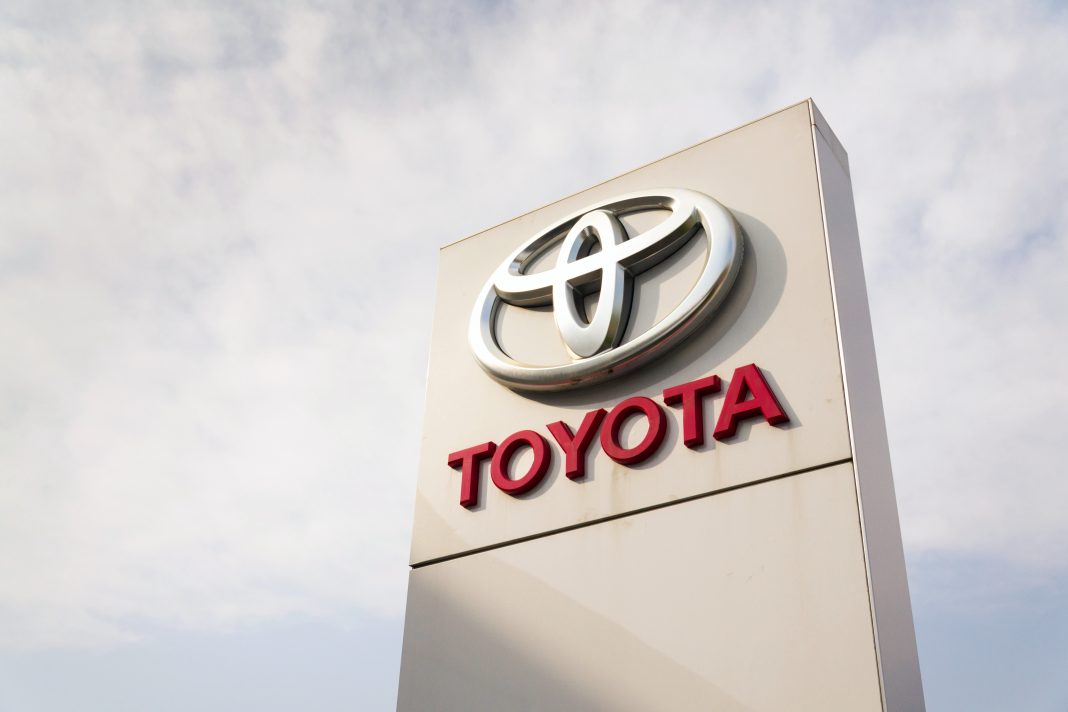For the first time since 1931, General Motors is not the best-selling vehicle brand in the United States. Toyota exceeded all other brands in the US last year for vehicles sold, dethroning an American icon in the process. However, the win will come with an asterisk beside the accolade with unforeseen challenges industry-wide that suppressed sales.
Toyota sold 2.3 million vehicles for the calendar year, climbing more than 10% above 2020 figures that were also challenging. On the other hand, General Motors sold 2.2 million vehicles in the U.S., sliding 13% from their 2020 totals.

In a briefing with the press on Tuesday, Toyota’s senior vice president of automotive operations, Jack Hollis, mentioned that the achievement is seen as “not sustainable”, although his comments did not shed light on why. General Motors President of North America also thought the reign would be short-lived, saying, “Our dealers and our engineering, supply chain, manufacturing and brand teams moved mountains to satisfy as many customers as possible in 2021. In 2022, we plan to take advantage of the strong economy and anticipated improved semiconductor supplies to grow our sales and share.”
Toyota avoided the worst of the shortage
The sales title may carry less weight than in previous years with carmakers shouldering the burden of a worldwide semiconductor chip shortage. While the industry hoped for a resolution last year, there was little relief to be had. Carmakers including both GM and Toyota struggled to keep dealer lots full of new inventory – vehicles that shoppers snapped up as quickly as they rolled off the assembly line.
Still, Toyota fared better than other carmakers, sitting on a more robust parts stockpile than the rest, loading up on key components as a response to shortages felt after a 2011 earthquake and tsunami in Japan. The same fortune was not with GM as images of incomplete vehicles parked awaiting critical components are a not-so-distant memory. In August, Arlington Assembly was building 1,000 vehicles per day that could not be completed until chips arrived, and Wentzville Assembly and Lansing Delta Township were also adding thousands of trucks and SUVs to that tally.
A tighter race than ever
The chip shortage is a temporary – albeit lengthy – hurdle, and General Motors has their eye on recapturing the sales title in 2022. But those watching the auto industry see the advantage waning for domestic carmakers.
| Related: December auto sales underwhelm due to shuttered supply chain |
Erik Gordon is a business professor at the University of Michigan who keeps a close watch on the auto industry. He said, “Toyota might not beat GM again this year, but the fact that they did it is symbolic of how the industry changed. No US automaker can think of themselves as entitled to market share just because they’re American.”
Also setting a new target for carmakers in the US and worldwide is the mass-market emergence of electric vehicles. Tesla currently leads that race by a healthy margin, but Ford is narrowing that gap with Mustang Mach-E sales and the highly anticipated Ford F-150 Lightning release. All other carmakers are aiming to capture market share in the sought-after EV segment with announcements almost daily. On Wednesday, Chrysler declared their intention to be all-electric by 2028 and GM unveiled the upcoming Silverado EV.
Toyota also expects to emerge as an electrified leader by 2030
Did you enjoy this article from Jason Unrau? Read other articles on CBT News here. Please share your thoughts, comments, or questions regarding this topic by submitting a letter to the editor here, or connect with us at newsroom@cbtnews.com.
Be sure to follow us on Facebook and Twitter to stay up to date or catch-up on all of our podcasts on demand.
While you’re here, don’t forget to subscribe to our email newsletter for all the latest auto industry news from CBT News.










